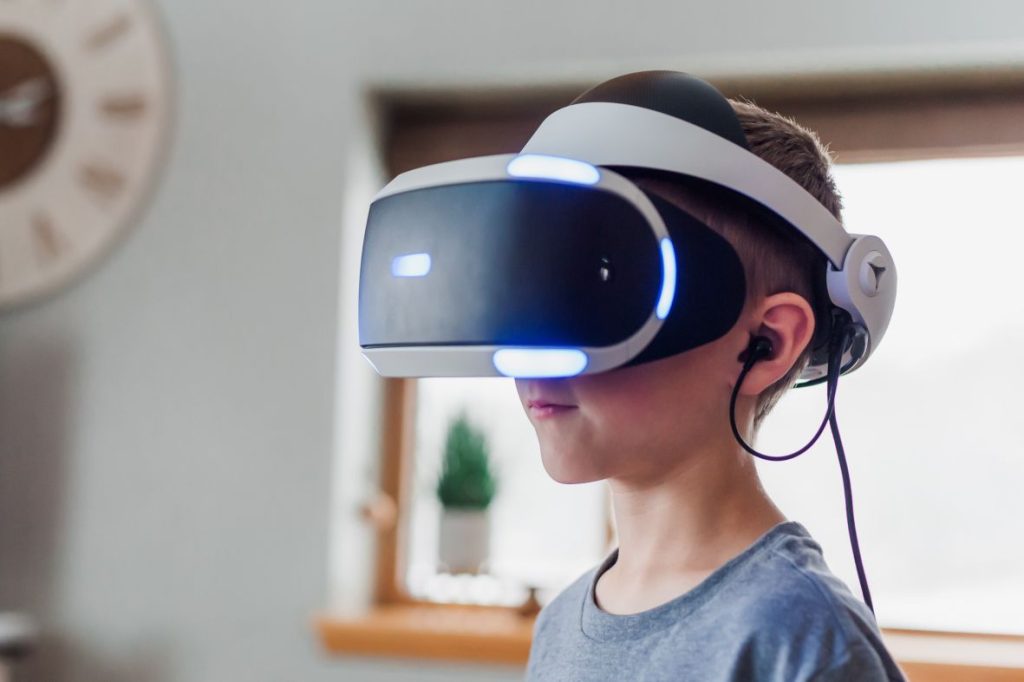
In 1935, a Science fiction novel ‘Pygmalion’s Spectacles’ by Stanley Weinbaum was published. The main character of the novel puts on a set of goggles that takes him to a made-up world with holographic materials that feel real. Cut to 2023, this is our reality. The market is flooded with “VR Headsets” in all price ranges from various companies including tech giants like Microsoft, Google, Meta, and most recently, Apple.
What is Virtual Reality?
With images and things that seem almost life-like, a virtual reality (VR) environment gives the user the impression that they are in another world. A virtual reality headset, helmet, or other equipment is normally used to experience this.
VR is not to be confused with Augmented Reality (AR) which uses a real-world setting to project holograms of sorts, that do not need a person to wear any specific equipment. VR is more of a fictional reality that can only be accessed with specific equipment like a VR Headset. Subsequent technical and software advancements over several years have brought a lot of innovation in both devices and interface design.
What Personal Data Do VR Headsets Collect?
As virtual reality grows more popular, the sorts of data gathered get increasingly advanced. The type of personal information headsets collect include the following:
- Biometric Data: This can include eye movements, pulse rate, facial emotions, and muscular tension.
- Environmental Data: This refers to information about the user’s environment, such as temperature, lighting, and sound.
- Behavioural Data: A VR app, for example, may monitor how users engage with one another and analyse the sorts of interactions that occur, both physical and emotional.
VR and Its Data Privacy Concerns
Eye tracking in VR, for example, might create a great experience for the user, but there are certain concerns when tracking eye movement data. Companies may insert adverts in VR games that display just where the user focuses his/her look most frequently and can therefore be used to target users in future.
Machine learning and facial recognition advancements enable people to modify a person’s speech and appearance, collecting very sensitive data that is personal to them specifically like their facial expressions and features. Storing this type of sensitive information is risky because it means that if a system is hacked, user data could be leaked and utilised in criminal ways.
VR headsets are more than simply toys. These immersive gadgets are sophisticated computing devices that enable users to purchase products and access personal or financial data. Any device that stores sensitive data in this manner is vulnerable to cyberattacks and breaches too.
The makers of these next-generation headsets are at the forefront of providing security to both organisations and individuals in the VR scene. Beyond the built-in security features of the headset, businesses that embrace VR should be regulated to let them make informed decisions about data sharing.






